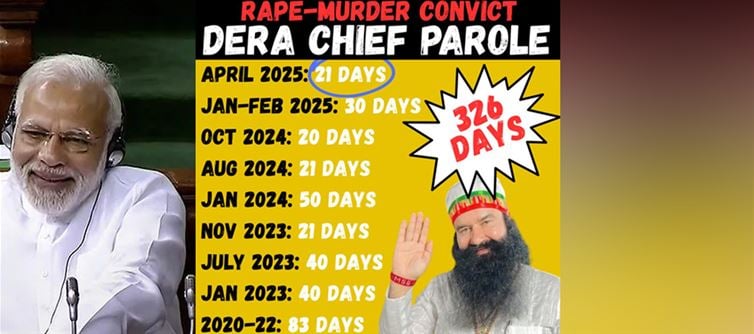
The core purpose of parole is to offer temporary respite under strict conditions, usually based on health, family emergencies, or demonstrable reform. But in the case of Gurmeet ram Rahim Singh, the frequency and duration of his paroles seem to reflect not compassion, but influence. Critics argue that his status as a high-profile spiritual leader continues to shield him from the full weight of his crimes. Meanwhile, the families of his victims are left to grapple with the trauma and pain, witnessing the man who destroyed their lives repeatedly walk free under the protection of the very institutions meant to uphold justice.
This case is not just an isolated instance of judicial failure — it is symbolic of a deeper rot in the system. When governments and courts allow a convicted criminal to be treated as a revered figure rather than a felon, it sends a dangerous message: that power and connections can trump guilt and accountability. It erodes public faith in the judiciary, insults the victims, and weakens the very foundations of deterrence that the law is supposed to uphold. If justice continues to be this selective, it ceases to be justice at all.




 click and follow Indiaherald WhatsApp channel
click and follow Indiaherald WhatsApp channel